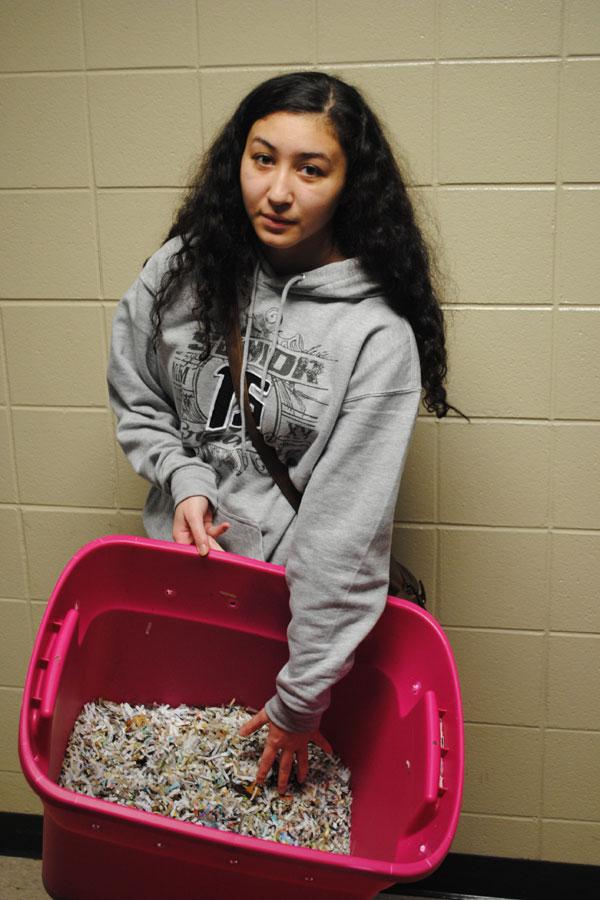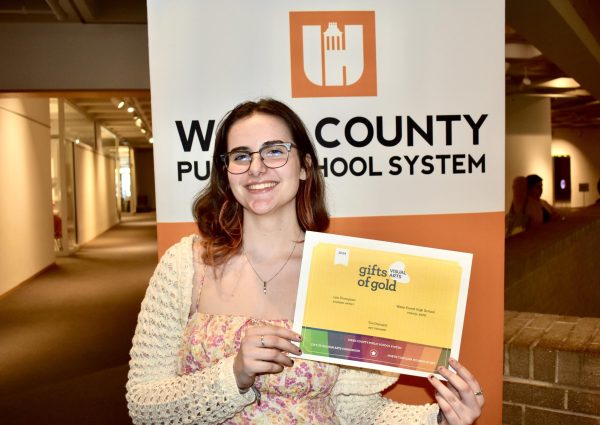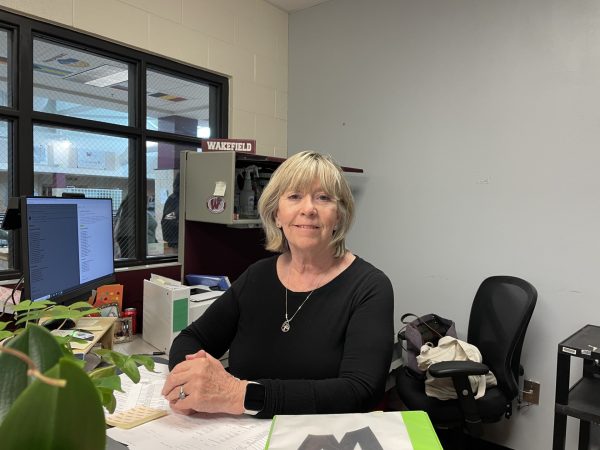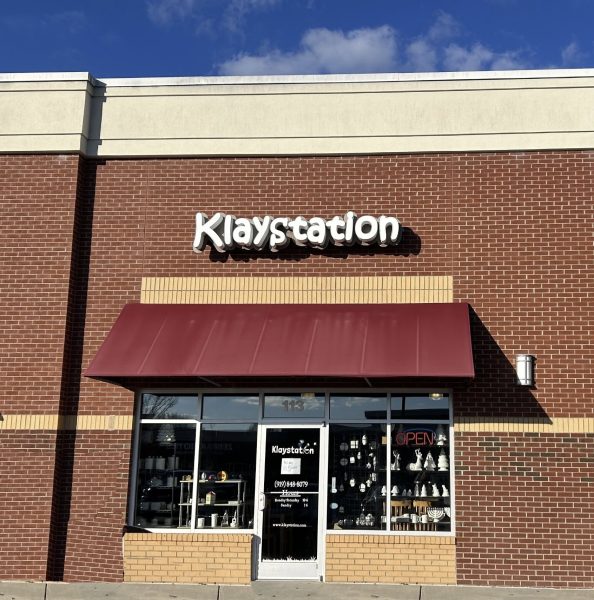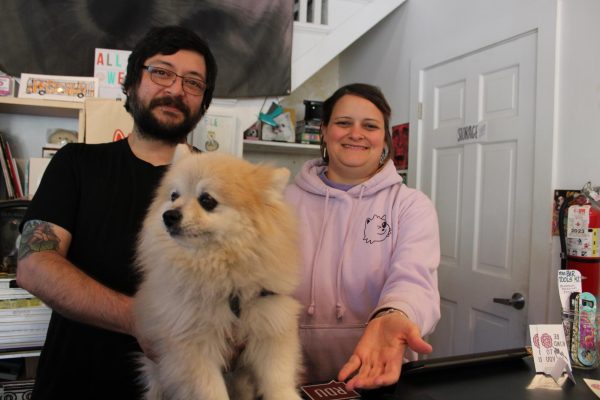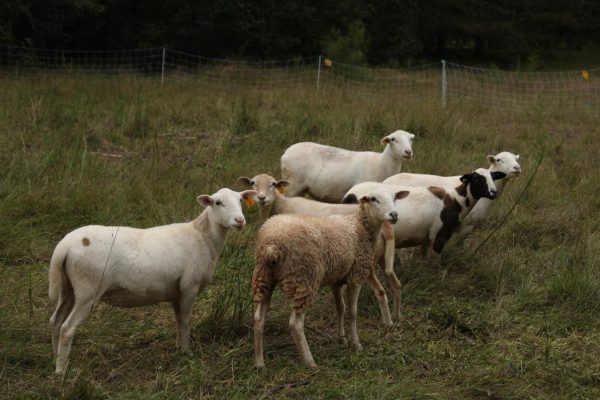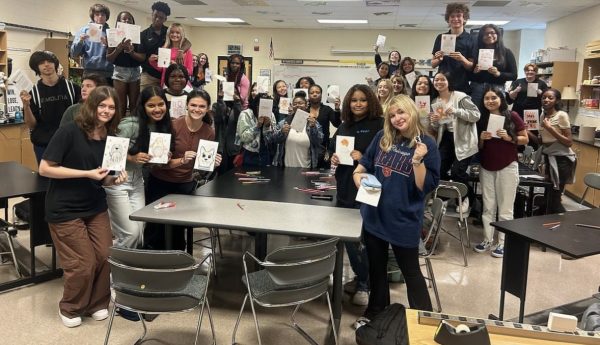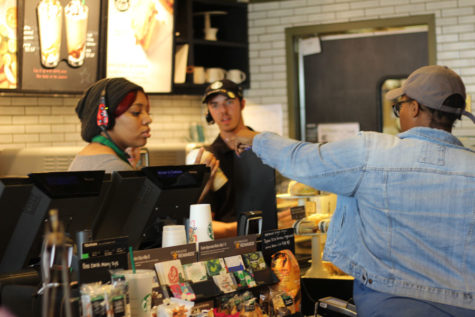Vermicomposting grant brings worms to the school, community
Toyoko Whitfield shows off worms.
January 6, 2015
Vermicomposting may sound strangely scientific, but worm enthusiasts everywhere understand the value in keeping a small bin full of worms and food scraps. At Wakefield and schools around the community participants in the Living to Serve grant have agreed to maintain worms throughout the school year to study the amount of compost generated from a bin of red wigglers.
Earlier this year, Agriculture Education teacher Jodi Riedel applied for the Living to Serve grant and won $2500 for supplies and materials to start the vermicomposting project. Kelly Durdock, Agriculture Education teacher at Wakefield, coordinated the distribution of worm bins from the grant through the National Future Farmers of America Organization to teachers and community members who volunteered.
The FFA decided to become involved with vermicomposting as well to help promote it at Wakefield. Two of these club members include senior Toyoko Whitfield and senior Alisiay Harper.
“Vermiculture is the use of worms to create nutrient-rich fertilizer,” said Harper.
In order to get younger generations involved in the process, the FFA introduced vermiculture to Wakefield Elementary, Forest Pines Elementary, as well as Wakefield Middle School, giving each class their own bin.
“We’ve worked a lot with elementary kids and it is fun to get them involved,” said Riedel. “It helps us reduce our trash and we get their poop, which is called vermicompost, and we put it on our plants which is good for them.”
The process allows kids and young adults to learn about how they can help the environment while having fun doing it. Starting at a young age helps raise awareness.
If anyone is qualified to teach students vermicomposting, it’s Riedel. She started composting back in college and has kept at it ever since.
“I have been growing worms (another term for vermiculture) since I was in college when I went to Michigan State and worked at a children’s garden,” said Riedel. “It’s always been something I’ve been familiar with and it’s good for the kids to get acclimated with the organic and sustainable processes.”
Becoming more sustainable is a growing trend in today’s society. As the world industrializes some compensation needs to be made to better the environment.
According to Green Waste, a privately owned and locally operated recycling and Diversion Company, the average American produces 1.5 tons of trash a year. 21.5 million tons of this waste, in America is food waste that can be composted.
“Every soil has nitrogen, potassium, and phosphorus but this adds more to it so it helps to in enrich our soil,” said Durdock.
Adding these nutrients to the soil is vital to growing healthy plants. The process of vermicomposting can take a while but in the end it is worth it. Taking care of worms is a pretty simple process.
“You get a bin, about eight to twelve inches deep, and you fill it with bedding, which is strips of newspaper from the recycling bin, and soil,” said Whitfield. “Next you add about one thousand worms and put food in there to eat. They decompose the food and the worm castings, which is their poop, makes all the good stuff.”



